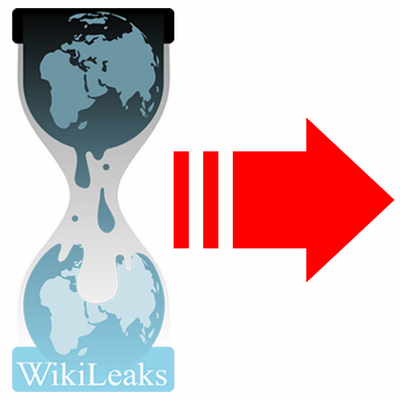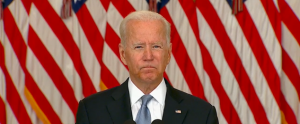CNN: Nearly 20,000 emails sent and received by Democratic National Committee staff members were released Friday by Wikileaks, with one message in particular raising questions about the committee’s impartiality during the Democratic primary.
The revelation threatened to shatter the uneasy peace between the Hillary Clinton and Bernie Sanders camps and supporters days before the Democratic convention kicks off next week.
The leaks, from January 2015 to May 2016, feature Democratic staffers debating everything from how to deal with challenging media requests to coordinating the committee’s message with other powerful interests in Washington.
The emails were leaked from the accounts of seven DNC officials, Wikileaks said. CNN has not independently established the emails’ authenticity.
One email features DNC staffers appearing to ponder ways to undercut Sanders, an insurgent Democrat who had a bitter relationship with party leadership. Sanders supporters charged that the DNC was biased toward Clinton, and Sanders late in the primary endorsed DNC chair Debbie Wassserman Schultz’s primary opponent in her Florida congressional race.
On May 5, a DNC employee asked colleagues to “get someone to ask his belief” in God and suggested that it could make a difference in Kentucky and West Virginia. Sanders’ name is not mentioned in the note.
“This could make several points difference with my peeps. My Southern Baptist peeps would draw a big difference between a Jew and an atheist,” DNC chief financial officer Brad Marshall wrote.
Neither the DNC nor Marshall immediately responded to requests for comment.
But Republican nominee Donald Trump said the emails were proof of the Democrats’ “rigged” system, resurfacing an attack he’s leveled against the party before.
“Leaked e-mails of DNC show plans to destroy Bernie Sanders. Mock his heritage and much more. On-line from Wikileakes, really vicious. RIGGED,” Trump tweeted Saturday morning.
‘It’s gas meets flame’
The publication of the emails comes just a weekend before the start of the Democratic convention, where a major objective will be to unify the Democratic Party by winning over Sanders’ voters.
Several Democratic sources told CNN that the leaked emails are a big source of contention and may incite tensions between the Clinton and Sanders camps heading into the Democratic convention’s Rules Committee meeting this weekend. Representatives of the former primary rivals are meeting Friday night to discuss the issue.
“It could threaten their agreement,” one Democrat said, referring to the deal reached between Clinton and Sanders about the convention, delegates and the DNC. The party had agreed to include more progressive principles in its official platform, and as part of the agreement, Sanders dropped his fight to contest Wasserman Schultz as the head of the DNC.
“It’s gas meets flame,” the Democrat said.
Michael Briggs, a Sanders spokesman, had no comment.
The DNC has previously had its files hacked by an individual named “Guccifer 2.0” that may have had ties to the Russians.
Hackers stole opposition research on Donald Trump from the DNC’s servers in mid-June. Two separate Russian intelligence-linked cyberattack groups were both in the DNC’s networks.
____________________________________________
DNC hack: What you need to know
Since initially making the cyberattack public last week, an online personality has surfaced, claiming to have documents from the DNC files and having no connection to the Russians.
But the claims made by the “Guccifer 2.0” individual are viewed with a dose of skepticism by experts who have analyzed the events.
Here’s an explanation of what we know about the hack.
So what happened?
The DNC and the cybersecurity firm that investigated the hack announced last week that it had been breached by two separate cyberespionage groups. One set of these hackers had been in the system about a year and had been monitoring internal communications, including email.
The other group of hackers had only been in the system a few months and had one target: The DNC’s opposition research on Donald Trump. That research file was the only data that researchers could definitively say had been taken by the hackers.
Both groups were linked to the Russian military-intelligence world by cybersecurity firm CrowdStrike, though they did not appear to even be aware of each others’ presence in the DNC system. Given the divided nature of the Russian power structure, it’s not uncommon to see hacking groups working for different branches of the Russian military and intelligence agencies without overall coordination, CrowdStrike co-founder and Chief Technology Officer Dmitri Alperovitch said.
Researchers could not definitively find how the groups got into the system, but the typical way in for the groups is through carefully crafted deceptive emails, called “spearphishing,” that trick recipients into clicking malicious links.
The hackers were kicked out of the system the weekend before the DNC went public, and CrowdStrike continues to monitor for attempts to break in again.
Why do they believe it’s the Russians?
High-level cyberespionage groups are skilled units of hackers, who work like digital thieves to break into chosen targets and take information.
Each of these groups has certain distinct signatures, from the way they get in, to the specially crafted malicious software they use, to the type of information that is taken and how it is transmitted out.
The cybersecurity firms that respond to breaches and monitor organizations’ networks see these hackers regularly, and investigate them. They put together databases and files on the distinct groups, often giving them names for easy reference.
CrowdStrike names Russian-linked groups it researches “bears.” It identified the hackers that took Trump’s oppo file and got in this spring as “Fancy Bear,” and the group that got in last year to monitor communications as “Cozy Bear.”
“We’ve had lots of experience with both of these actors attempting to target our customers in the past and know them well,” wrote Alperovitch in a blog post detailing their technical findings. “In fact, our team considers them some of the best adversaries out of all the numerous nation-state, criminal and hacktivist/terrorist groups we encounter on a daily basis.”
And it isn’t just CrowdStrike — other cybersecurity firms have since backed up their findings. Fidelis wrote in a post that it had analyzed the samples of the software and technical findings from the breach and also found Cozy Bear (aka APT 29 and CozyDuke, depending on firm’s naming systems) and Fancy Bear (aka APT 28, Sofacy and Strontium) to be responsible. Two other companies, Mandiant and ThreatConnect, also told The Washington Post they had verified the findings.
Why would the Russians even hack the DNC?
Many governments worldwide have high-level cyberespionage groups working for them, who may target secrets from other governments, intelligence agencies, government contractors, think tanks and academics.
Just like in traditional espionage, the goal of digital spying is to vacuum up information that could be useful to the motherland. That could be anything from secret engineering plans for fighter jets to classified state secrets to insight into political figures’ motivations and behavior.
There is keen interest overseas in the U.S. presidential election, and understanding the candidates would be important to other nations that would have to deal with their potential administration.
And Trump’s file may be of special interest, as he has one of the shortest political resumes of any modern presidential candidate. With his relative newness to the scene, insight and research into his history is valuable.
What about this other claim?
The person claiming to be Guccifer 2.0 posted several documents on the Internet and sent them to media outlets including Gawker, portraying the documents as coming from the hack of the DNC’s files. The documents included a file about Trump and what looked like memos about DNC operations.
But there is no way to verify the identity of this Guccifer 2.0 individual. The name is a reference to a Romanian hacker who pleaded guilty to hacking several prominent politicians and figures, including Presidents George W. Bush and George H.W. Bush, who went online by Guccifer.
There is also no way to verify the authenticity of the documents. The DNC would not comment on their veracity and the alleged hacker offered no proof that they were what they purported to be.
The character could even be an invention of the Russians to try to lay seeds of doubt and plausible deniability about their involvement in the hack. And it could be an individual looking to capitalize on the media attention for his or her own ends.





